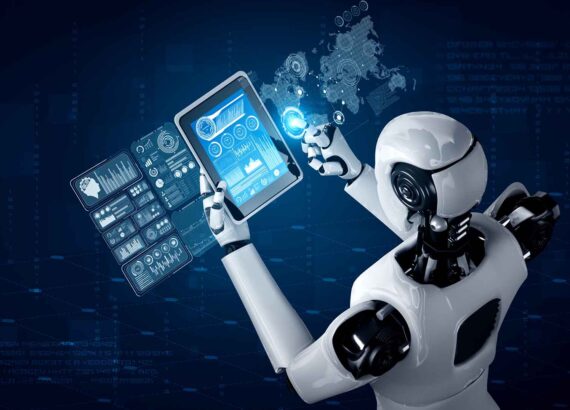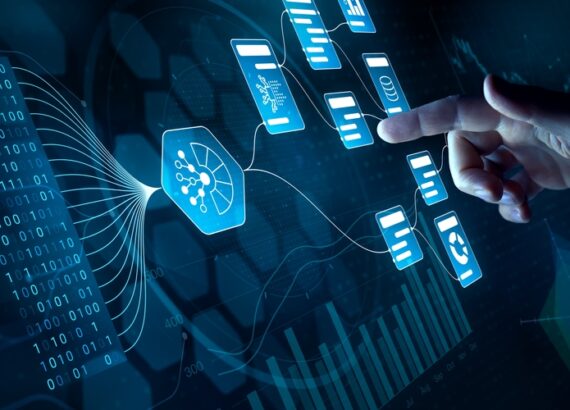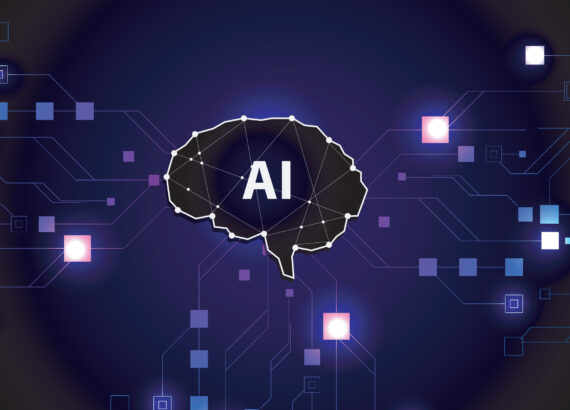The Future of Work: How AI Will Transform Job Industries
AI is growing very fast in every sector. One area where its impact is particularly profound is the world of work. AI technologies, such as machine learning, automation, and natural language processing, are revolutionizing job industries across the board. From manufacturing to healthcare, knowledge-based professions to the gig economy, AI is transforming the way we work, creating both opportunities and challenges. In this article, we will explore the future of work in the AI era, delving into the ways in which AI is poised to reshape job industries and the implications for individuals and society at large.
1. Introduction: The Rise of AI in the Workplace
Understanding the Growing Influence of AI
Artificial Intelligence (AI) has swiftly emerged as one of the most intriguing and transformative technologies in recent times. Its growing influence is becoming increasingly hard to ignore, with advancements in machine learning and automation reshaping various industries. AI is no longer just a futuristic concept we see in sci-fi movies; it’s becoming a prominent part of our everyday lives, including our work environments.
The Evolution of AI in Job Industries
The integration of AI into job industries is not a new phenomenon. We’ve witnessed its gradual evolution over the years. Initially, AI was limited to repetitive tasks and data analysis. However, thanks to ongoing research and technological breakthroughs, AI is now capable of much more. From complex problem-solving to natural language processing and even creative endeavors, AI is rapidly finding its place across different job sectors.

2. AI and Automation in Traditional Industries
When it comes to traditional industries like manufacturing and production, AI has made significant strides in automation. AI-powered robots and machines can now perform intricate tasks with precision and efficiency. This not only improves productivity but also reduces the risk of human error and enhances workplace safety.
Automating Transportation and Logistics with AI
Transportation and logistics have also experienced a significant transformation with AI. From self-driving cars and trucks to AI-powered route optimization, the industry is witnessing a shift towards autonomous systems. This not only promises to improve efficiency but also has the potential to revolutionize last-mile delivery and minimize the environmental impact of transportation.
Revolutionizing Agriculture and Farming through AI
Even in the world of agriculture and farming, AI is making its mark. AI-powered systems can analyze soil conditions, monitor crop health, and automate irrigation processes. By providing real-time insights and actionable data, AI enables farmers to make informed decisions, leading to higher crop yields and sustainable practices.
3. The Impact of AI on Knowledge-based Professions
Transforming Healthcare with AI-powered Solutions
In knowledge-based professions like healthcare, AI is transforming the way medical professionals operate. From diagnostic tools that can analyze medical images to personalized treatment recommendations based on vast amounts of patient data, AI is aiding in quicker and more accurate diagnoses. It also has the potential to enhance patient care by automating administrative tasks and allowing healthcare providers to focus on what matters most – their patients.
AI and the Future of Education
Education is another sector that stands to benefit from AI. Adaptive learning platforms can personalize educational experiences, catering to individual student needs. AI-powered virtual assistants provide immediate support and guidance, making learning more interactive and engaging. Additionally, AI can assist in analyzing student performance data, helping educators identify areas where additional support may be needed.
The Legal Field and AI: Opportunities and Challenges
The legal field is not immune to the influence of AI either. Legal professionals can now rely on AI for tasks like contract analysis, legal research, and even predicting case outcomes. However, this also poses certain challenges, including ethical concerns and the need for human oversight to ensure transparency and accountability.
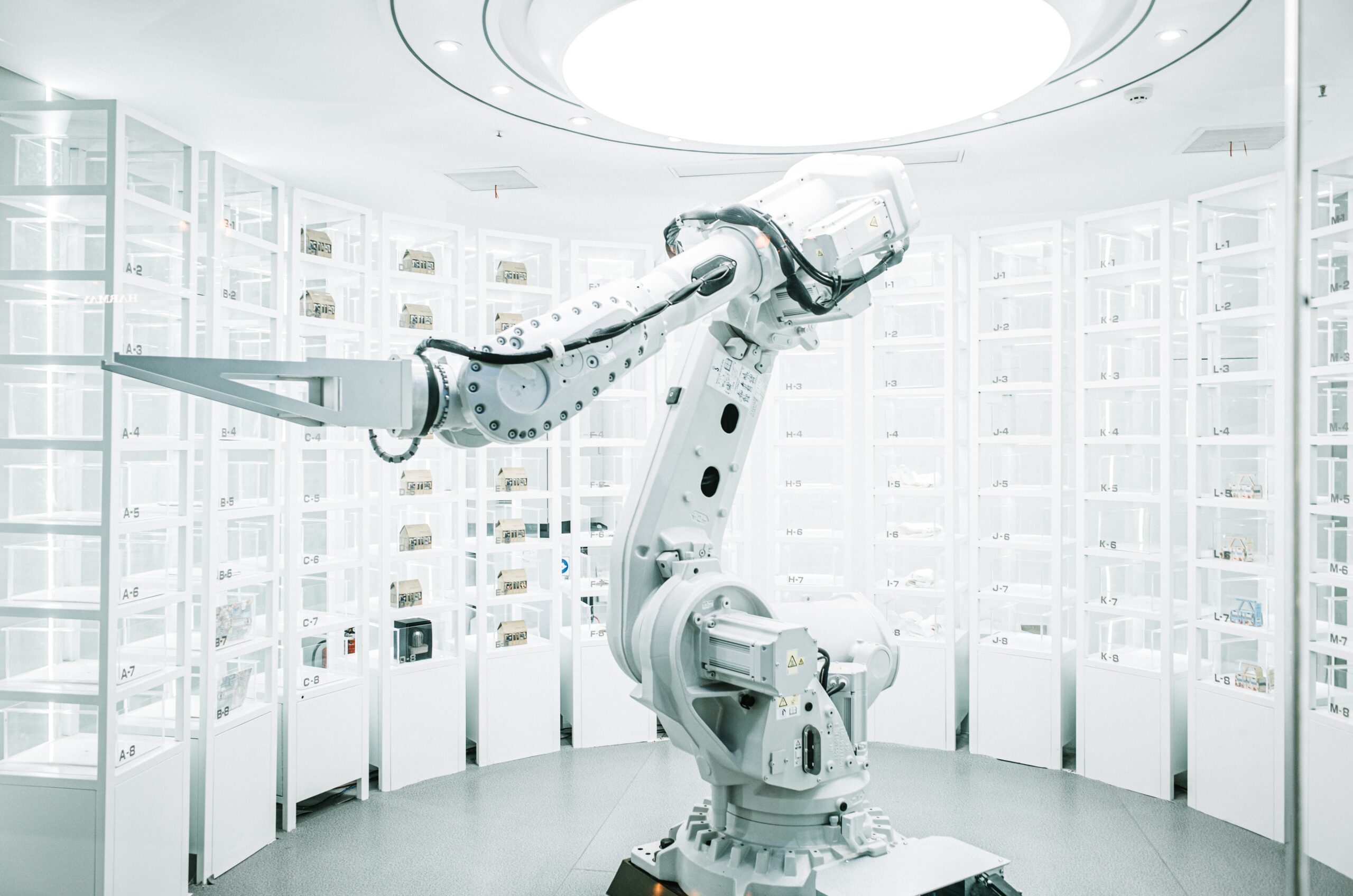
4. AI and the Gig Economy: Transforming Freelance Work
AI Platforms and Freelancing
The gig economy, characterized by freelance work, is experiencing its own AI-driven transformation. AI platforms are emerging that connect freelancers with clients based on their skill sets and project requirements. These platforms can match freelancers to suitable projects, streamlining the hiring process and enabling efficient collaboration.
AI-Powered Marketplaces: Changing the Dynamics of Freelancing
Marketplaces that bring together freelancers and clients are also leveraging AI to enhance user experiences. AI algorithms can recommend relevant projects to freelancers, making it easier to find work. Additionally, AI-powered tools can assist in project management, time tracking, and even language translation, further optimizing the freelance workflow.
Benefits and Drawbacks of AI in the Gig Economy
While AI brings numerous benefits to the gig economy, such as increased access to job opportunities and improved efficiency, there are also potential drawbacks. One concern is the potential for AI to replace certain freelance roles, especially those that involve repetitive or mundane tasks. Striking a balance between human expertise and AI automation will be crucial in leveraging the full potential of this changing landscape.
In conclusion, AI’s impact on job industries is undeniable. From traditional sectors to knowledge-based professions and even the gig economy, AI is revolutionizing the way we work. As this technology continues to evolve, it is important for organizations and individuals to adapt and embrace the opportunities AI presents while navigating the challenges that come along. After all, the future of work will be shaped by a combination of human capability and the assistance of our AI counterparts.
5. Ethical Considerations in AI-driven Job Industries
The Need for Ethical AI Frameworks
Artificial Intelligence (AI) has the potential to revolutionize job industries, but it also raises important ethical considerations. As AI becomes more prevalent in the workplace, there is a need for clear ethical frameworks to guide its development and use. This includes establishing guidelines for responsible AI implementation, ensuring transparency in decision-making processes, and addressing concerns about job displacement and inequality.
Addressing Bias and Discrimination in AI Algorithms
One of the biggest challenges in AI-driven job industries is the potential for bias and discrimination in AI algorithms. AI systems are only as good as the data they are trained on, and if that data is biased, it can perpetuate existing inequalities. It is crucial to address these issues by carefully designing and testing AI algorithms, diversifying the data used for training, and ensuring regular audits and reviews to identify and rectify any biases that may arise.
Privacy and Data Security Concerns in AI-powered Workplaces
As AI becomes more integrated into the workplace, there are valid concerns about privacy and data security. AI systems often require access to vast amounts of data to operate effectively, which raises questions about how that data is collected, stored, and used. Organizations must prioritize data protection measures, including robust cybersecurity protocols and transparent data handling practices, to ensure that individuals’ privacy is respected and their data is safeguarded.

6. Reskilling and Adaptability: Navigating the AI-powered Workforce
The Importance of Upskilling and Reskilling
With AI reshaping job industries, there is a growing need for individuals to upskill and reskill to remain employable. AI technology may automate certain tasks, but it also creates new opportunities for human workers to take on more complex and creative roles. By investing in continuous learning, individuals can acquire the skills and knowledge needed to navigate the AI-powered workforce and stay ahead in their careers.
Adapting to New Roles and Collaborating with AI
As AI becomes more prevalent, workers will need to adapt to new roles that involve collaborating with AI systems. This requires developing skills such as data analysis, critical thinking, and problem-solving, which can complement the capabilities of AI technology. Embracing collaboration with AI rather than seeing it as a threat can lead to increased productivity and efficiency in the workplace.
Managing Workforce Transitions in the Era of AI
In the era of AI, managing workforce transitions is vital to ensure a smooth and inclusive transition for all employees. Organizations should prioritize effective change management strategies, including providing training and support for employees adapting to new roles, fostering a culture of continuous learning, and implementing transparent communication channels to address concerns and maintain employee morale.
7. The Role of AI in Enhancing Human Productivity
Augmented Intelligence: AI as a Collaborative Tool
By utilizing AI technology as a collaborative tool, humans can leverage its power to achieve greater productivity and efficiency in their work. AI can assist in data analysis, automation of repetitive tasks, and generating insights, allowing humans to focus on higher-level decision-making and creative problem-solving.
Increasing Efficiency and Accuracy with AI Automation
AI automation has the potential to significantly increase efficiency and accuracy in job industries. Mundane and repetitive tasks can be automated, freeing up valuable time for workers to focus on more complex and value-added activities. This results in improved productivity, reduced human error, and ultimately, better outcomes for businesses and their customers.
AI-Enabled Decision Making and Problem Solving
AI is not only capable of processing vast amounts of data but also analyzing complex patterns and making data-driven recommendations. This opens up new possibilities for AI-enabled decision-making and problem-solving. By harnessing AI’s analytical capabilities, individuals can make more informed decisions, identify trends, and devise effective strategies that can drive business growth and innovation.
8. Looking Ahead: Anticipating the Future of Work in the AI Era
Predictions for AI’s Impact on Job Industries
While the full extent of AI’s impact on job industries is yet to be realized, there are several predictions about its future implications. Some jobs may become automated, leading to job displacement in certain industries, but new roles and industries will emerge as a result of AI advancements. The key lies in proactive adaptation and continuous learning to stay relevant in a changing job market.
The Need for Human Adaptability and Creativity
As AI technologies advance, human adaptability and creativity become even more valuable. While AI systems can perform specific tasks efficiently, they still lack the ability to think critically, demonstrate empathy, and engage in creative problem-solving. These uniquely human qualities will continue to be in demand, making it essential for individuals to cultivate their creativity, emotional intelligence, and adaptability to thrive in the AI era.
Building a Positive Future with AI and Humanity
As AI technology continues to shape the future of work, it is crucial to remember that AI is a tool created by humans. By prioritizing ethical considerations, investing in reskilling and upskilling, and fostering collaborative relationships between humans and AI, we can build a positive future where AI enhances human capabilities rather than replacing them. The key lies in harnessing the power of AI while ensuring that it aligns with human values and aspirations.In conclusion, the future of work is undeniably intertwined with the advancements in artificial intelligence. While AI presents immense potential for improving productivity, efficiency, and innovation, it also raises important ethical considerations and calls for the need to adapt and upskill. As we navigate the AI-powered workforce, it is crucial to strike a balance between harnessing the benefits of AI and preserving the uniquely human qualities that drive creativity, empathy, and critical thinking. By embracing the transformative power of AI and proactively preparing for its impact, we can shape a future where humans and machines collaborate harmoniously to create a more prosperous and equitable society.

FAQ
1. How will AI impact job industries?
AI has the potential to significantly impact job industries by automating repetitive tasks, augmenting human capabilities, and revolutionizing existing processes. It can lead to job displacement in certain sectors while creating new job opportunities in others. The precise impact will vary across industries, but it is crucial for individuals and organizations to adapt and reskill to thrive in the AI-driven workforce.
2. What are the ethical considerations in AI-driven job industries?
As AI becomes more prevalent in job industries, ethical considerations become paramount. Questions of bias in algorithms, privacy and data security, transparency, and accountability arise. It is essential to establish ethical frameworks and regulations to ensure the responsible development and implementation of AI technologies, safeguarding against potential harm and discrimination.
3. How can individuals prepare for the future of work in the AI era?
Preparing for the future of work in the AI era requires individuals to embrace lifelong learning and acquire new skill sets. Upskilling and reskilling are crucial to remain relevant and adaptable in an evolving job market. Developing skills that complement AI technologies, such as critical thinking, creativity, emotional intelligence, and complex problem-solving, can help individuals thrive alongside AI in the workplace.
4. Will AI completely replace human workers?
While AI has the potential to automate certain tasks and roles, complete replacement of human workers is unlikely. Instead, AI is more likely to augment human capabilities, allowing individuals to focus on higher-level tasks that require creativity, decision-making, and interpersonal skills. Humans and AI can work together synergistically, with AI handling routine tasks and humans providing the unique qualities that machines cannot replicate.
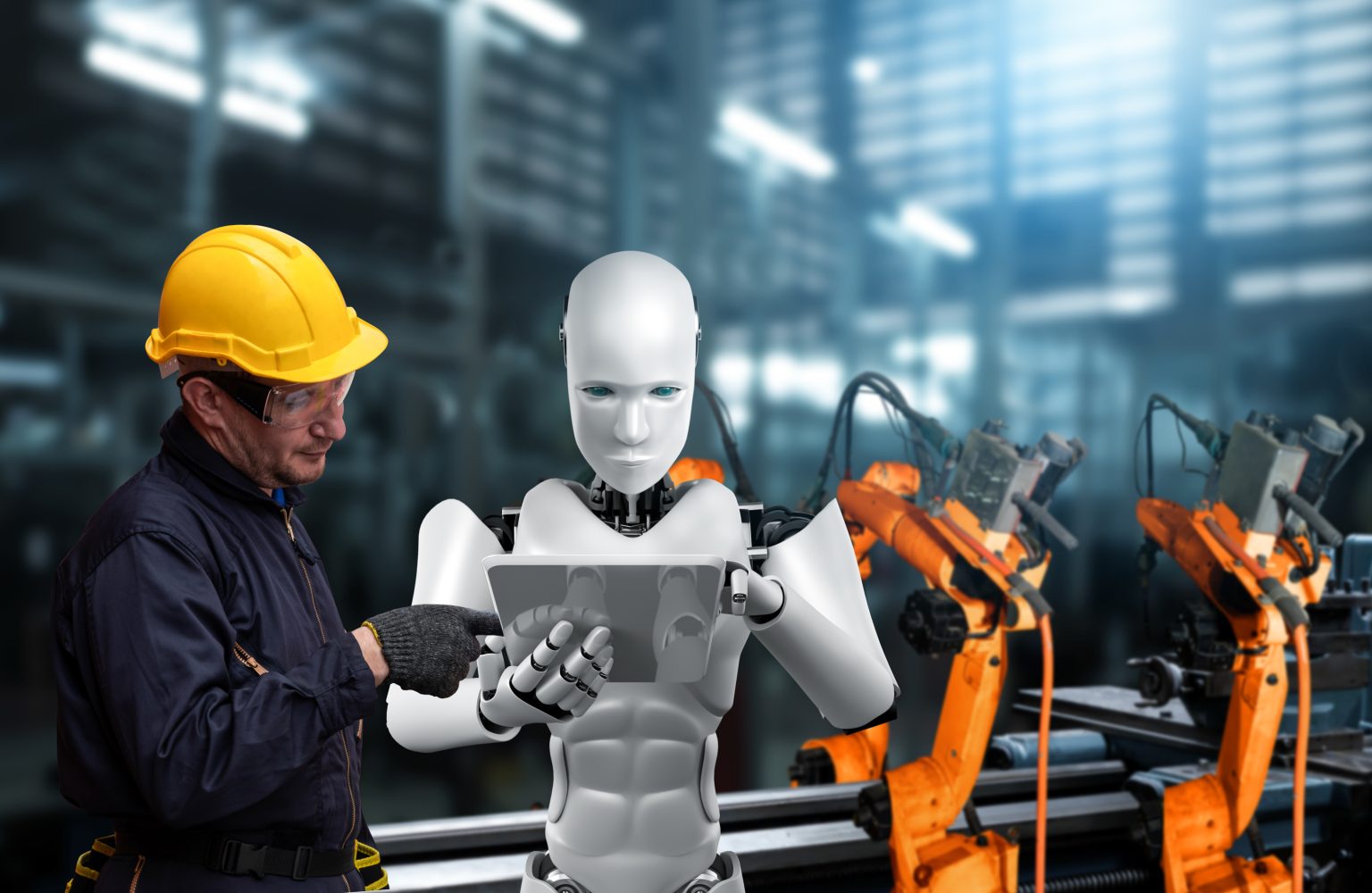
If you want to build your website in an affordable price contact: www.nextr.in
Read this: 10 Must-Have AI Tools For Every Tech-Savvy Entrepreneur




